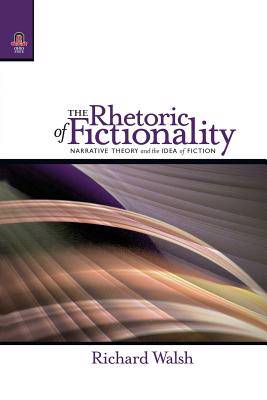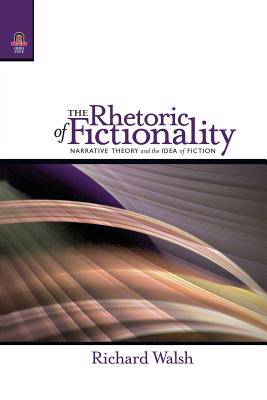
Bedankt voor het vertrouwen het afgelopen jaar! Om jou te bedanken bieden we GRATIS verzending (in België) aan op alles gedurende de hele maand januari.
- Afhalen na 1 uur in een winkel met voorraad
- In januari gratis thuislevering in België
- Ruim aanbod met 7 miljoen producten
Bedankt voor het vertrouwen het afgelopen jaar! Om jou te bedanken bieden we GRATIS verzending (in België) aan op alles gedurende de hele maand januari.
- Afhalen na 1 uur in een winkel met voorraad
- In januari gratis thuislevering in België
- Ruim aanbod met 7 miljoen producten
Zoeken
€ 40,95
+ 81 punten
Omschrijving
Narrative theory has always been centrally concerned with fiction, yet it has tended to treat fictions as if they were merely the framed or disowned equivalents of nonfictional narratives. A rhetorical perspective upon fictionality, however, sees it as a direct way of meaning and a distinct kind of communicative gesture. The Rhetoric of Fictionality: Narrative Theory and the Idea of Fiction by Richard Walsh argues the merit of such a perspective and demonstrates its radical implications for narrative theory. A new conception of fictionality as a distinctive rhetorical resource, somewhat like the master-trope of fictional narrative, cuts across many of the core theoretical issues in the field. The model, set out in chapter one, is subsequently tested and elaborated in relation to currently prevalent assumptions about narrativity and mimesis; narrative structure; the narrator and transmission; voice and mediacy; narrative media and cognition; and creativity, reception, and involvement. Throughout, the theoretical analysis seeks to vindicate readers' intuitions about fiction without merely restating them: the result is a forceful challenge to many of narrative theory's orthodoxies. The rhetorical model of fictionality advanced in this book offers up new areas of inquiry into the purchase of fictiveness itself upon questions of narrative interpretation. It urges a fundamental reconception of the apparatus of narrative theory by theorizing the conditions of significance that make fictions conceivable and worthwhile.
Specificaties
Betrokkenen
- Auteur(s):
- Uitgeverij:
Inhoud
- Aantal bladzijden:
- 208
- Taal:
- Engels
- Reeks:
Eigenschappen
- Productcode (EAN):
- 9780814252475
- Verschijningsdatum:
- 2/06/2015
- Uitvoering:
- Paperback
- Formaat:
- Trade paperback (VS)
- Afmetingen:
- 152 mm x 229 mm
- Gewicht:
- 312 g

Alleen bij Standaard Boekhandel
+ 81 punten op je klantenkaart van Standaard Boekhandel
Beoordelingen
We publiceren alleen reviews die voldoen aan de voorwaarden voor reviews. Bekijk onze voorwaarden voor reviews.









